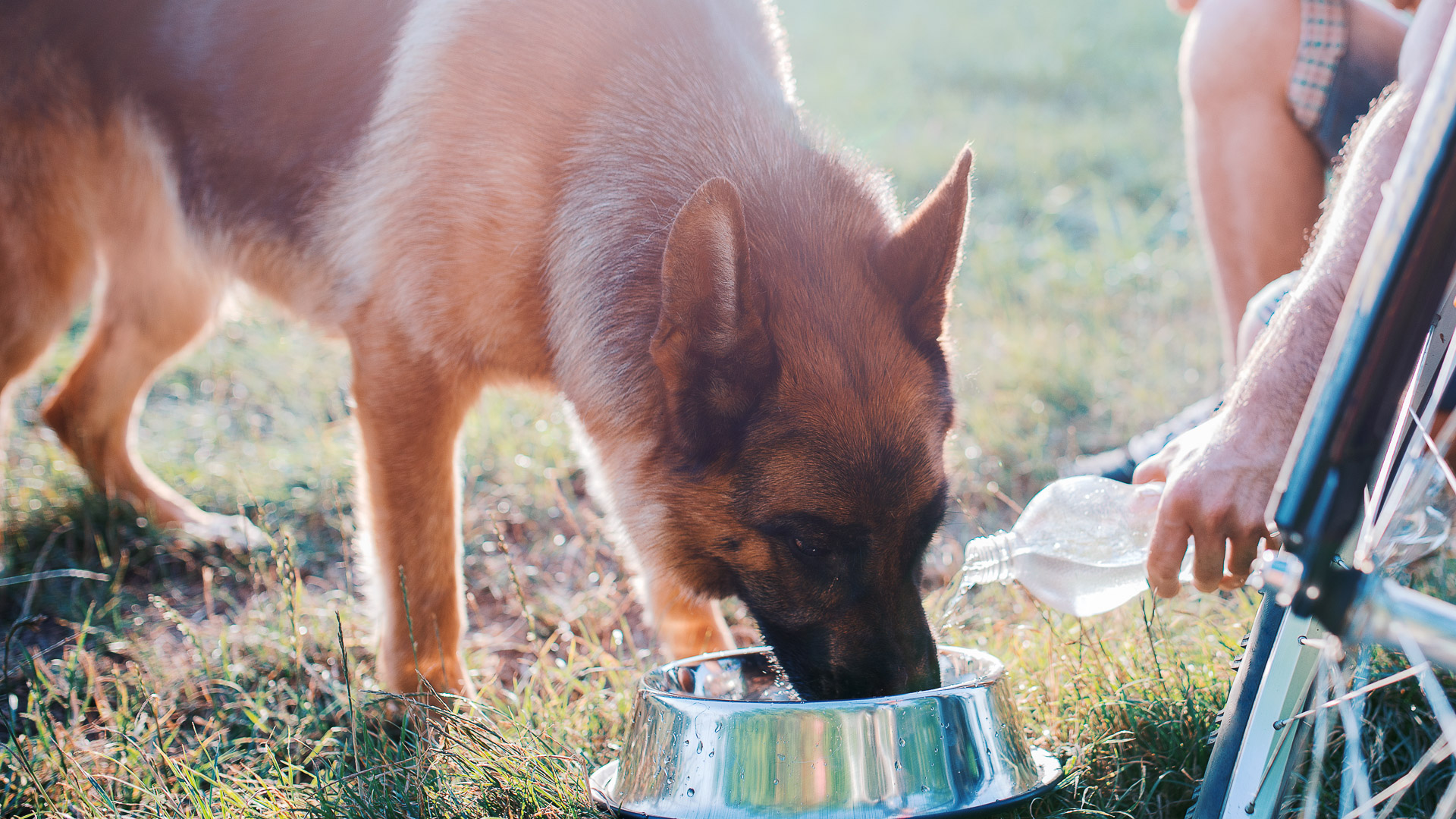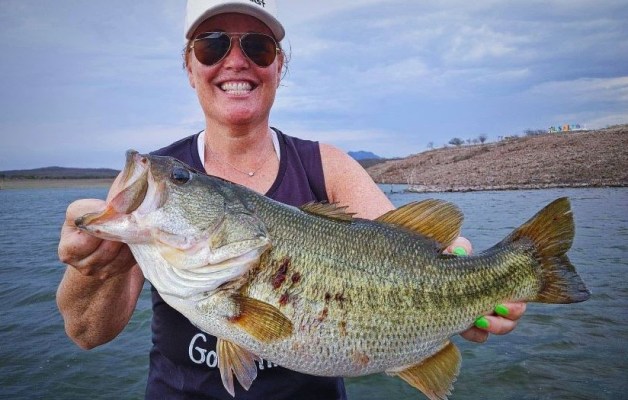
Drinking water is important for everyone, but it’s especially important for dogs. Water supports all of a dog’s body systems. It helps dogs maintain an optimal core body temperature which helps safeguard them from overheating. And it aids the absorption of nutrients by a dog’s body from food. But how much water should your dog drink? Here are some insights and tips to help keep your dog hydrated on every outside adventure.
Why water is so important for dogs.
Russ Kelley, the Scientific Services Nutritionist at Eukanuba’s™ Pet Health and Nutrition Center says, “A dog’s body is approximately 70% water. That water is used by cells in every body system, from the muscular to the nervous to the digestive systems and all others. The amount of water in a dog’s body is called his hydration status, and it can quickly change. Warm or hot weather, high humidity, higher elevations, and increased exercise cause dogs to lose water, and if they don’t drink enough then they can run the risk of dehydration. When a dog is dehydrated their performance can suffer, but there’s a more important reason, too; their overall health can suffer. Proper hydration is very important.”
A statement from a recent working dog summary concluded that dogs are capable of recovering after losing the majority of their fat and half of their muscle tissue…while the loss of only 10% of their body’s water can result in death.1 That statement alone should have owners asking, “how much water does my dog require?”
To put water consumption into perspective it’s helpful to know, for example, that a 44 lb. dog can lose between 0.5 and 1.5 gallons of water per day depending on their activity and the environmental conditions.2 So an active dog should, at a minimum, consume as much water as they’re losing. But 0.5 to 1.5 gallons is a pretty wide range.
To get to a more precise number, one rule of thumb is to calculate a dog’s water intake by how much food they consume. Simply multiply the number of cups of dry food offered daily by three cups. So, three cups of food would mean a dog should drink nine cups (a little over 0.5 gallon) of water, and so on. Keep in mind that this target is the minimum amount of water an active dog should drink each day when exercising outside. This amount or more will help reduce the risk of dehydration but may not prevent it.

Tips to keep your dog hydrated on your next outside adventure.
- Pack plenty of water. For longer hikes, runs or outdoor play be sure to pack plenty of water in bottles or a hydration pack.
- Take frequent hydration breaks. When exercising or playing outside with your dog, take regular water breaks especially when exercising in the heat. Provide water that is fresh and cool, but not icy cold.
- Pre-hydrate for longer outside activities. If you know you’re going on a long hike or run, consider pre-hydrating your dog. Start increasing water intake 3-5 days before the activity. One way to pre-hydrate is to add water to your dog’s food. Measure out the water in a 1:1 ratio and feed immediately as some dogs don’t like soggy kibble. If you’re exercising your dog regularly you might want to include water in his food every day. Water baiting is another pre-hydration strategy. Add a small heap (1-2 tablespoons) of wet food to the bottom of a bowl and fill with water. Most dogs will gladly lap up the water to reach the food.
- Keep water in bowls clean. Refresh water bowls regularly. Exercising dogs can develop a thick, pasty saliva that rinses off when they drink from a bowl. So change their water frequently.
Is there such a thing as bad water?
Dr. Jill Cline, the Site Director for Eukanuba’s™ Pet Health and Nutrition Center says, “Cooling off in a mud puddle is ok, but drinking from it can cause illness. Bacteria and protozoa found in the standing mud puddles cause Giardia and diarrhea. And there is no telling what kind of toxins are in those puddles. Run off may contain weed killer or fertilizer used in nearby fields. If you’re at the beach, don’t let your dog drink saltwater. The salt in the water is a dehydrator and drinking enough of it can shut down his kidneys.”
To learn more about keeping your dog hydrated and cool during warm-weather activities, visit Eukanuba.com/HRI.
1 https://www.workingdogmagazine.com/fueling-performance-keep-your-dog-hydrated/
2 REYNOLDS, AJ, K SNEDDEN, GA REINHART, KW HINCHCLIFF, AND RA SWENSON. 1998. HYDRATION STRATEGIES IN EXERCISING DOGS. IN: GA REINHART AND DP CAREY EDS. RECENT ADVANCEMENTS IN CANINE AND FELINE NUTRITION, VOL. 2, IAMS NUTRITIONAL SYMPOSIUM PROCEEDINGS. ORANGE FRAZER PRESS, OH, PP 259-267




